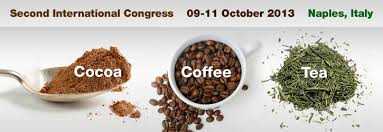Nunes, F. M.1, Coelho, C.1, Cruz, A. C. S.1,Bunzel, M.2, Coimbra, M. A.3 1 CQ-Vila Real, Chemistry Research Centre, ChemistryDepartment, Universityof Trás-os-Montes e Alto Douro, Vila Real, Portugal 2 Department of Food Chemistry
and Phytochemistry, Karlsruhe Institute of Technology, KIT, Germany 3QOPNA, DepartmentofChemistry, Universityof Aveiro, Aveiro, Portugal.
Evidence for the presence of phenolic compounds on coffee melanoidins has put forward in the last few years. Nevertheless, there are contradictory results about the amount and nature of phenolic compounds in these brown polymeric structures.
Different isolation methods seem to give different amounts of adsorbed phenolic compounds, namely chlorogenic acid and chlorogenic acid lactones [1,2]. Also, phenolic compounds can be esterified in the melanoidins, namelycaffeic, ferulic and dihydrocaffeicacidsthat can be released by alkaline saponification [3,4,5].
Some reports also found condensed phenolic structures that can only be released from melanoidins employing alkaline fusion, a more drastic method [6,7,8]. In this work,melanoidins were isolated from coffee and from a modified “in bean” model coffee enriched with phenolic compounds, and the nature of phenolic compounds present was evaluated by measuring the amount of phenolic compounds adsorbed, esterified, and condensed.
Results show that dialysis effectively removes almost the totality of the adsorbed phenolic compounds. Condensed phenolic compounds released by alkaline fusion account for 98% of the total phenolic compounds.
Adsorbed phenolic compounds account for approximately 1.1% of the total phenolic compounds recovered by alkaline fusion and the amount of esterified phenolic compounds, excluding those adsorbed, account for approximately 0.8%. Studies on model phenolic compounds show that alkaline fusion can cleave ether linked and carbon-carbon linked phenolic compounds.
From these results it can be concluded that phenolic compounds present in melanoidins are mainly condensed forms.


















